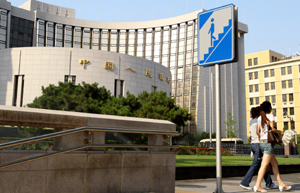Plan to spark demand for electric cars
By Wang Wen (China Daily)
2010-11-30 13:55
|
|
Beijing wants 30,000 new-energy cars on the road
Beijing residents who buy new-energy vehicles will be entitled to a subsidy of up to 60,000 yuan, according to a new plan proposed by the local government.
The government plans to promote 30,000 new-energy vehicles in Beijing by the end of 2012, of which 23,000 will be electric vehicles and 7,000 hybrids.
According to People's Daily, the local government will give 3,000 yuan for each kilowatt-hour of battery capacity to owners of new -energy vehicles. For hybrid vehicles the maximum subsidy will be 50,000 yuan, for electric vehicles it will be 60,000.
The newspaper also reported that the government intends to build 100 recharging stations in the city to support the development of electric vehicles.
The plan has already passed an assessment by experts from four ministries.
However, a staff member with the Beijing Municipal Science and Technology Commission said the plan is still waiting for the green light from the Ministry of Science and Technology.
Some residents are skeptical of the plan. Shi Yu, an office worker in Beijing who is planning to buy a vehicle at the end of this year, said even though the subsidy is attractive she will not buy a hybrid or electric-powered car.
"I will not consider a new-energy vehicle in the next five years, because I do not believe the technology is ready yet," she said.
Chen Quanshi, a professor from the Department of Automotive Engineering at Tsinghua University, also said the technology is not mature enough yet.
"The technology has not gone through enough tests and is still a long way from the market," said Chen, who is also director of the electric vehicle branch of the Society of Automotive Engineers of China.
However, Chen said, the technology will be improved - it will just take time.
"The key to new-energy vehicles is the market demand," he said.
At present, it is difficult to buy an electric vehicle from dealers in Beijing.
| |||||||
"The automakers only sell the new-energy vehicles around their place of production," said Chen.
This is because they are still testing the technology and keeping the cars a short distance from the plant helps with that, he added.
However, the low price of new-energy vehicles is attracting some consumers. A domestic hybrid vehicle costs about 80,000 yuan and some young consumers said they would consider a new-energy vehicle as their first car.
However, Chen said: "Consumers should not be misled by the low price of electric vehicles, because the vehicles also need money to maintain."
In Western countries, rich people buy electric vehicles when they have more than one vehicle, because they have enough money to maintain the electric vehicles, he added.
Considering the technology, market and policy, Chen said the business will probably start to boom after 2020.







